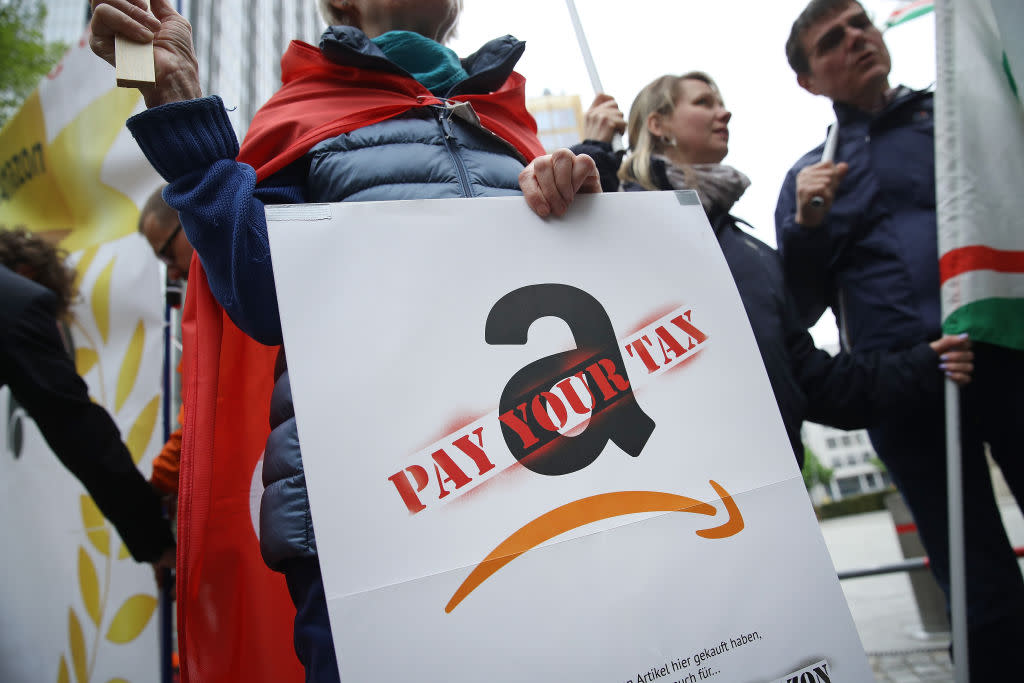War on billionaires: Australia among global tax havens fuelling inequality

Australia has ranked 48th in the latest list of global tax havens, with the nation “undoubtedly” hosting significant quantities of illicit funds.
But while the country ranks relatively low on the Tax Justice Network’s 2020 Financial Secrecy Index, the United States has overtaken Switzerland as a global tax haven, and the Cayman Islands is still the worst offender.
Over the course of 2019, the Cayman Islands increased the volume of financial services it provides to non-residents by 21 per cent, and the US increased its supply of financial secrecy to the world by 15 per cent.
Panama, the source of 11.5 million leaked documents in 2015 that exposed a huge system of tax evasion among the world’s elite, sat 15th on the index.
Also read: Google, Amazon, Netflix paying almost no tax in Australia
Also read: ‘Your $13.99 Netflix subscription is more than what the company paid in tax’
Also read: Amazon paid a 1.2% tax rate on $13,285,000,000 in profit for 2019
Tax Justice Network chief executive Alex Cobham said while polls show people in the US and the UK favour greater transparency when it comes to tax, governments have taken their feet off the pedal.
“It is deplorable, however, that in the face of this progress, an Anglo-American axis of secrecy has actively chosen to double down on the practices that exacerbate corruption, tax abuse and global inequalities,” Cobham said.
US companies rorting the tax system
While the US has surged past Switzerland as a tax haven for non-residents, American companies also take advantage of the country’s lenient tax policies introduced by the Trump administration back in 2018.
The Tax Cuts and Jobs Act took lowered the corporate tax rate from 35 per cent to 21 per cent – but companies like Amazon have still gotten away with paying next to nothing in federal income taxes.
In fact, in 2018, Amazon literally paid $0 in federal income taxes.
Last year, the company paid US$162 million in income tax - which is an effective tax rate of just 1.2 per cent on its US$13 billion profits.
And Amazon isn’t alone.
According to the Institute on Taxation and Economic Policy, sixty Fortune 500 companies did not pay federal income tax in 2018 – three times more than the number of companies that did not pay corporate taxes between 2008 and 2015.
In Australia, Google and Amazon paid around 3 per cent of their revenue in corporate tax, compared to the nation’s 30 per cent corporate tax rate.
Netflix is not dissimilar, with the company paying just over $341,000 in tax in Australia despite raking in between $600 million and $1 billion from local subscribers.
The company’s corporate structure reportedly allows a Netherlands-based subsidiary to bill its customers, which incurs a Dutch tax rate that’s much lower than Australia’s.
How tax avoidance fuels inequality
Wealth inequality is rife across the globe: the richest 1 per cent (those with more than $1 million in assets) own 45 per cent of the world’s wealth, and adults with less than $10,000 in wealth make up 64 per cent of the world’s population.
The globe is home to 2,208 billionaires, and the world’s 10 richest billionaires own $735 billion in combined wealth - a sum greater than the total goods and services most nations produce on an annual basis, according to Inequality.org.
And there is a link between tax evasion and inequality, studies have found.
A 2019 study published in the American Economic Review found offshore tax evasion was highly concentrated among the rich - and the wealthier someone was, the more likely they were to hide assets in Switzerland.
When these individuals, and indeed big corporations, stash their wealth in tax havens, they deprive their governments of the resources they need to provide vital public services, Oxfam states.
In turn, governments are forced to cut down on those services, or collect higher taxes from others - and both options lead to a wider wealth gap.
According to Oxfam’s statistics, corporate tax dodging costs poor countries at least $100 billion every year, which is enough money to provide education to 124 million children, and prevent the deaths of almost eight million mothers, babies and children each year.
Is there a solution?
The big winners in tax evasion are big corporations and wealthy people, and Nobel-prize winning economist Joseph Stiglitz has previously advocated for a global minimum tax rate of 20 per cent in a bid to stop the gap widening.
"The first tax reform we need is to get a global agreement to end the tax competition race to the bottom and make sure that there isn't massive tax avoidance,” Stiglitz told The Sydney Morning Herald back in 2017.
"The fiscal paradises are still there. Panama is still there. Money laundering is still going on."
Alternatively, Tax Justice Network’s Cobham suggested responsible policymakers outside of local governments must consider counter measures.
“Creating a fair world that treats all members of society as equals means reprogramming our financial and tax systems to run on transparency, not secrecy, making it impossible for criminals and elites to go uncounted and making sure countries are well-resourced and well-governed to support everyone to lead a meaningful and fulfilling life."
The top 50 of the Financial Secrecy list
Cayman Islands
United States
Switzerland
Hong Kong
Singapore
Luxembourg
Japan
Netherlands
British Virgin Islands
UAW
Guernsey
UK
Taiwan
Germany
Panama
Jersey
Thailand
Malta
Canada
Qatar
South Korea
Bahamas
Algeria
Kenya
China
Lebanon
Cyprus
Kuwait
Ireland
Gibraltar
Macao
Malaysia
Franc
Nigeria
Angola
Austria
Vietnam
Israel
Sri Lanka
Bermuda
Italy
Jordan
Isle of Man
Russia
Saudi Arabia
Egypt
India
Australia
Marshall Islands
Belgium
Make your money work with Yahoo Finance’s daily newsletter. Sign up here and stay on top of the latest money, news and tech news.
Follow Yahoo Finance Australia on Facebook, Twitter, Instagram and LinkedIn.


